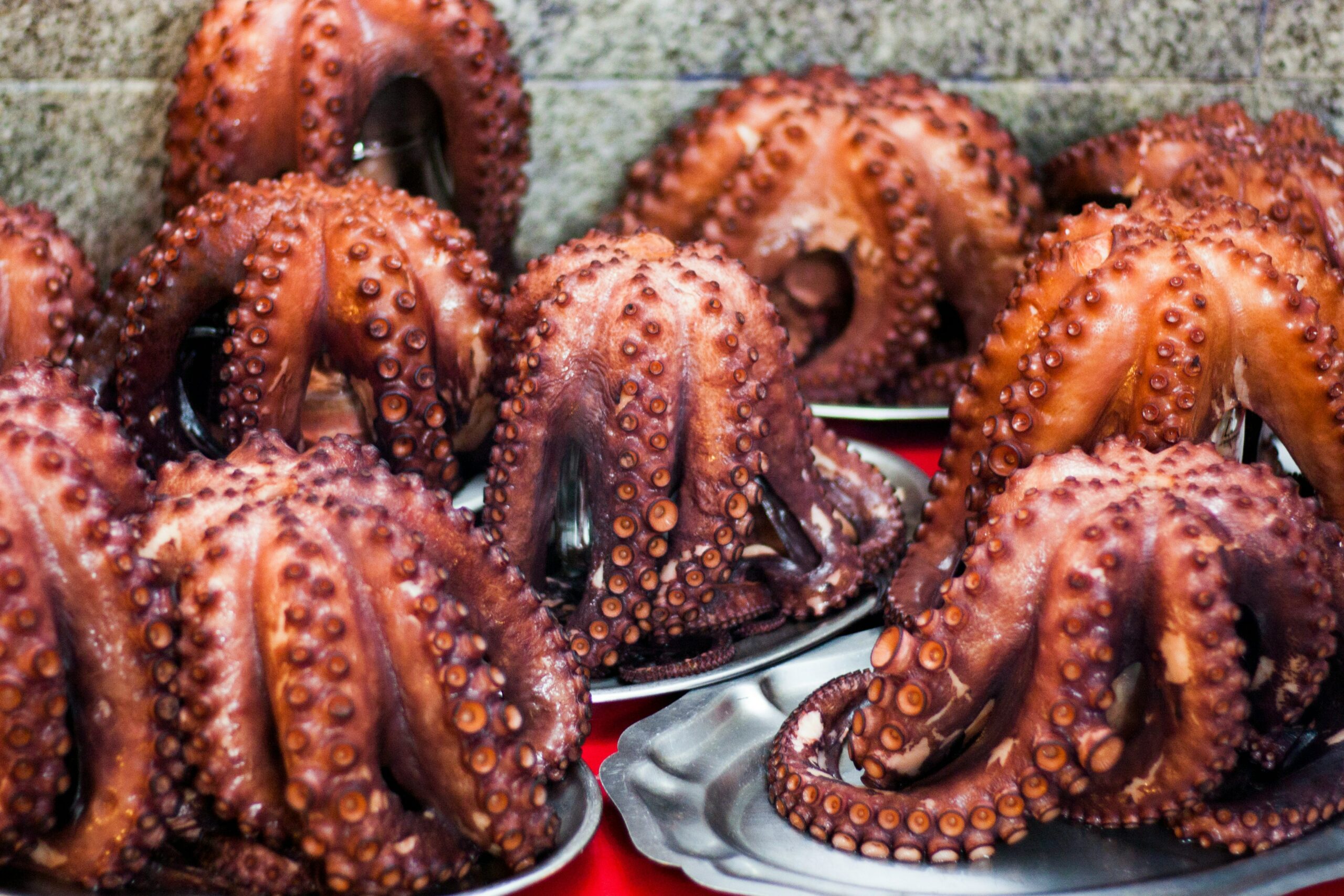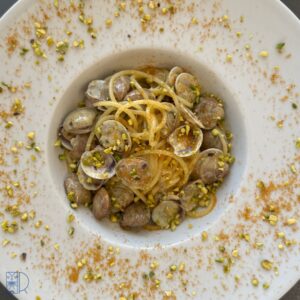History and tradition of octopus in cusine
Octopus has deep roots in Mediterranean culinary tradition, dating back to antiquity. Considered a delicious food, it was already appreciated by the Greeks and Romans, who included it in their banquets for its nutritional properties and delicate taste.This shellfish has always played a central role in the cuisine of the Italian coasts, where it was caught and prepared in a variety of ways, from fresh salads to more elaborate dishes such as octopus alla luciana, typical of Naples.Its versatility makes it suitable for every season: cold in summer, warm in winter.
Over time this animal has become a symbol of seafood cuisine, a timeless dish that encompasses the flavors and aromas of the Mediterranean, making it a must-have ingredient on the menus of the most renowned restaurants, such as Ristorante Bagno La Rotonda.
Anatomy and unique characteristics
The octopus is a cephalopod mollusk known for its fascinating anatomy and unique characteristics. Equipped with eight tentacles, each covered with two rows of suckers, it is capable of grasping prey and moving with great dexterity on the seabed. This animal has three hearts: two pump blood to the gills, while the third distributes it to the rest of the body.
Another peculiarity is its blue blood, due to the presence of copper in hemocyanin, an oxygen-carrying protein. This mollusk is also a master of camouflage, thanks to the chromatophores in its skin, which allow it to change color to adapt to its surroundings or escape predators. Lacking a skeleton, the octopus can squeeze into tight spaces, making it an extraordinary animal both for its physical abilities and its surprising intelligence.
Nutritional values and benefits of octopus
Octopus is a highly nutritious and healthful food that is distinguished by its low fat content and high protein intake. With only 57 calories per 100 grams, it is an ideal option for those on a low-calorie diet. Rich in high-quality protein, it provides all essential amino acids, making it especially good for muscle growth and tissue regeneration.
In addition this mollusk is an excellent source of minerals such as iron, calcium, phosphorus and potassium, which contribute to the proper functioning of the body, from nervous system support to bone health. It also contains B vitamins, particularly B12, which is essential for red blood cell production and energy metabolism. Thanks to these properties, octopus is not only tasty but also a valuable ally for a balanced and healthy diet.
How to cook octopus to perfection
Cooking octopus to perfection requires care and a few tricks to prevent the meat from becoming tough or chewy. One of the secrets to tender octopus is to freeze it for at least 48 hours before cooking it, as the cold breaks down the muscle fibers, making them softer.
Another trick is to soak the tentacles several times in boiling water before cooking it completely, to curl the suckers and keep the skin intact. Cooking time varies depending on the size of the octopus, but in general, slow cooking over a low flame is ideal: the octopus should be simmered for about 40 to 60 minutes.
To know if it is ready, you can do the fork test: if it easily penetrates the meat, the octopus is cooked. Finally, letting it rest in the pot with the lid closed helps keep its texture soft and juicy.
Curious facts about octopus: an extraordinary animal
The octopus is an extraordinary creature that is fascinating not only for its versatility in cooking, but also for its incredible natural abilities. This mollusk is endowed with astonishing intelligence, so much so that it is capable of solving complex problems, such as opening jars or escaping from aquariums, demonstrating a keen self-awareness.
One of its most remarkable features is its ability to blend in: thanks to chromatophores in its skin, it can change color and even texture to blend seamlessly with its surroundings. In addition, the octopus has three hearts, which work in synergy to maintain the oxygenation of its body, and its blue, copper-rich blood makes it even more unique in the animal kingdom.
These peculiarities, combined with its agility and ability to regenerate its tentacles, make it one of the most fascinating and complex marine creatures.
At Bagno La Rotonda Restaurant in 2024 Menu
At Bagno La Rotonda Restaurant in Marina di Grosseto, this mollusk is the protagonist of one of the most beloved and representative dishes on the menu: the “Octopus Tentacles on Saffron Potato Cream.” This delicacy combines tradition and innovation, enhancing the delicate flavor of octopus with the creaminess of potatoes and the refined aroma of saffron.
The restaurant, located in one of Tuscany’s most charming seaside resorts, stands out for the quality of its seafood dishes, prepared with fresh, local ingredients. Octopus, always on the menu, is masterfully cooked to ensure perfect texture and unforgettable taste. Those who visit Bagno La Rotonda cannot help but try this iconic dish, which best represents the passion for cooking and love for the authentic flavors of the sea, typical of Grosseto’s culinary tradition.






